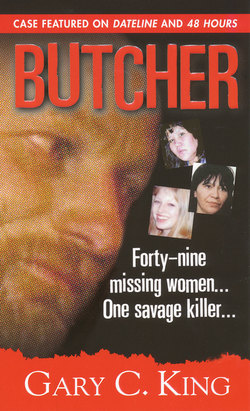Читать книгу Butcher - Gary C. King - Страница 7
На сайте Литреса книга снята с продажи.
Author’s Note
ОглавлениеThe contents of the book that you now hold in your hands is that of an often complicated story of missing women, torture, mutilation, and dismemberment involving one of the most horrifying cases of serial murder in modern history. I have been following the case in varying degrees since it first broke with Robert Pickton’s arrest in February 2002, and the depiction of the events herein is based on hundreds of hours of research of more than yearlong trial accounts, telephone calls, and e-mails with those who were willing to discuss the tragic events following the trial, as well as a careful analysis of statements that Pickton made to an undercover police officer and others after his arrest. For purposes of clarity, every attempt has been made to present the story in the order that it unfolded, from the time that it was first noticed that women from Vancouver’s “Low Track” area began disappearing, through the investigation after the police were convinced that they had a serial murderer on their hands, and on through the trial. Even though backgrounds of the women who disappeared during “Uncle Willie’s” reign of terror will be presented, the primary focus of this book is on the victims whose deaths Pickton was actually charged with and those women of which he was convicted of murdering.
No attempt has been made to fictionalize any aspect of this sad story—every incident portrayed herein is based on the facts as they are known—and none of the characters portrayed are fictional or are composites of my imagination. Portions of the story were related to me by family members and friends of the victims, and portions were taken from the various public information sources that became available following Pickton’s trial. A gag order had been in effect prior to the outcome of the trial, and during the trial only selected information releases to an equally selected media were authorized by the Canadian government.
Nonetheless, every effort has been made to portray the victims of Vancouver’s Downtown Eastside as the living, breathing human beings that they were, and it is my hope that they are not further objectified. These women, whose lives on the streets were tragic enough before Robert Pickton came along, deserve the honor, respect, and commemoration that Pickton took away from them and their families.
—G.C.K.
